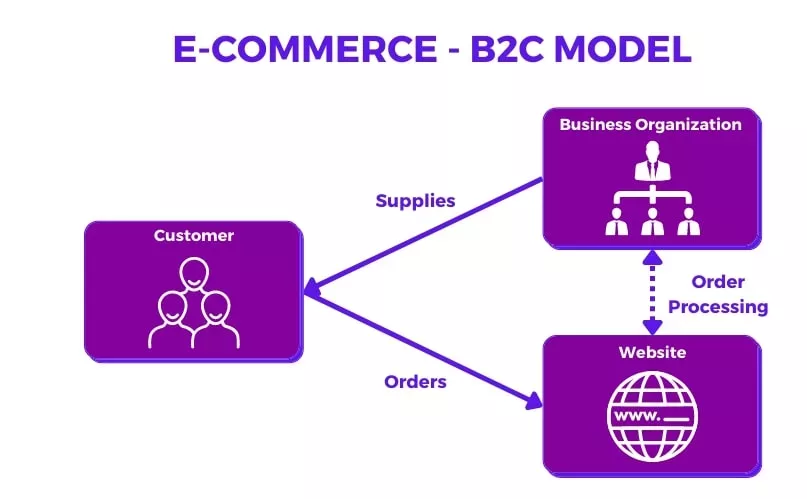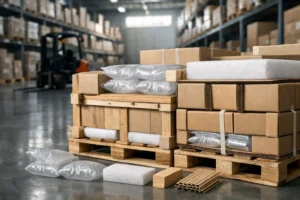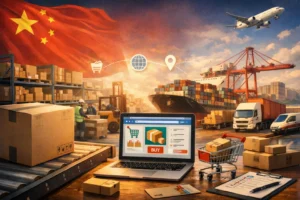In the world of e-commerce, efficient order fulfillment plays a crucial role in ensuring customer satisfaction and business success. Whether you operate a business-to-consumer or a business-to-business (B2B) e-commerce model, understanding the differences in order fulfillment processes is essential. In this article, we will explore the distinctions between B2C and B2B order fulfillment, focusing on the specific challenges and requirements of B2C fulfillment. We will also discuss the importance of B2C warehousing in ensuring smooth operations and customer-centric experiences.

B2C Order Fulfillment: Meeting Individual Customer Expectations
B2C order fulfillment refers to the process of receiving, processing, and delivering customer orders placed on an e-commerce website. Unlike B2B fulfillment, which typically involves bulk orders from businesses, B2C fulfillment deals with individual customers’ orders. Here are some key aspects of it:
a. Speed and efficiency
B2C customers have high expectations when it comes to order processing and delivery. Fast shipping, accurate order fulfillment, and timely communication are critical for ensuring customer satisfaction.
b. Individual packaging and labeling
Each B2C order requires individual packaging and labeling, often including personalized messages or promotional materials. This customization adds complexity to the fulfillment process.
c. Last-mile delivery
This involves delivering products directly to the end consumers’ doorstep. Managing the logistics of last-mile delivery is crucial for ensuring prompt and reliable service.
B2B Order Fulfillment: Catering to Business Clients’ Unique Needs
B2B order fulfillment focuses on serving businesses that require larger quantities of products or supplies. Compared to B2C fulfillment, B2B order fulfillment has some distinct characteristics:
a. Volume and scale
B2B orders typically involve bulk quantities, which may require specialized handling, packaging, and storage solutions. Warehousing facilities must accommodate larger inventory volumes.
b. Negotiated contracts and terms
B2B transactions often involve negotiated contracts, pricing, and terms. The fulfillment process needs to align with these agreements and cater to the unique requirements of business clients.
c. Streamlined processes
B2B fulfillment may involve repetitive orders from established clients. Implementing efficient processes, such as automated order processing and inventory management systems, helps streamline operations.

The Role of B2C Warehousing in Order Fulfillment
B2C warehousing plays a pivotal role in efficient order fulfillment for e-commerce businesses. Here’s why:
a. Inventory management
The facilities must manage a diverse range of products, each with unique SKU (Stock Keeping Unit) requirements. Accurate inventory tracking, stock rotation, and real-time visibility are critical for preventing stockouts and improving order accuracy.
b. Pick-and-pack operations
This requires individual picking and packing of orders. Efficient warehousing systems that optimize picking routes, streamline packaging, and incorporate barcode scanning can significantly improve order accuracy and speed.
c. Scalability and flexibility
B2C businesses experience fluctuating demand, especially during peak seasons and promotional periods. B2C warehousing should be scalable and flexible to accommodate increased order volumes, ensuring consistent fulfillment performance.
Conclusion:
While both B2C and B2B e-commerce models involve order fulfillment, understanding the unique characteristics of each is essential for success. B2C order fulfillment focuses on meeting individual customer expectations, with emphasis on speed, personalization, and last-mile delivery. On the other hand, B2B fulfillment caters to businesses’ specific needs, such as volume, negotiated contracts, and streamlined processes. Regardless of the model, B2C warehousing plays a crucial role in ensuring efficient operations, accurate inventory management, and scalable fulfillment capabilities. By tailoring order fulfillment strategies to the target audience, e-commerce businesses can enhance customer satisfaction, drive repeat purchases, and foster long-term growth. Fulfillmen can help you with your b2C needs.




